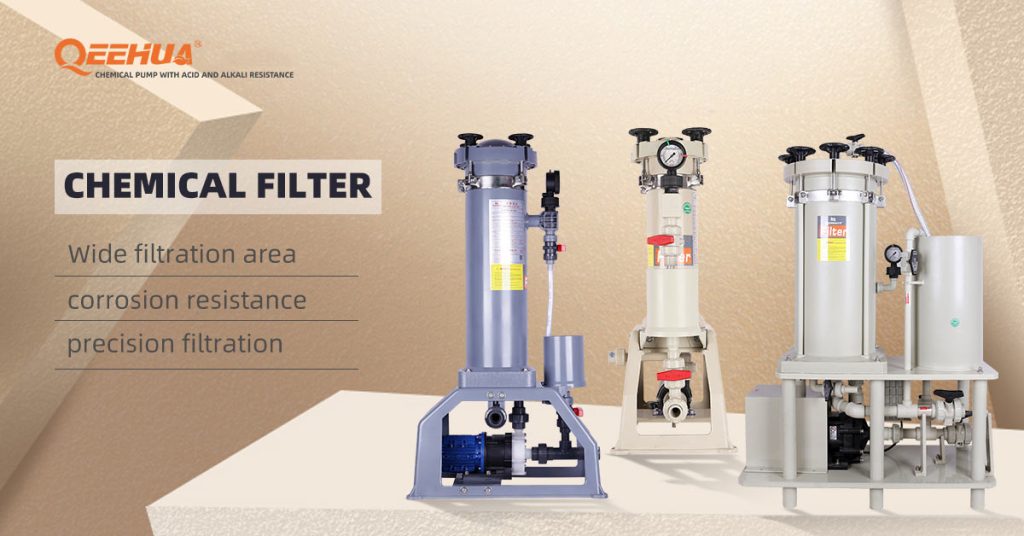
。
# Electroplating Chemical Filtration Systems for Enhanced Process Efficiency
Electroplating is a critical process in various industries, including automotive, electronics, and jewelry manufacturing. The quality of the final product heavily depends on the purity and consistency of the chemical solutions used. This is where electroplating chemical filtration systems come into play, ensuring that the plating solutions remain free from contaminants that could compromise the plating quality.
## The Importance of Filtration in Electroplating
Contaminants in electroplating solutions can lead to a host of problems, such as poor adhesion, uneven plating, and even complete failure of the plating process. These contaminants can come from various sources, including airborne particles, residues from previous plating operations, and degradation of the plating solution itself. Effective filtration is essential to remove these impurities and maintain the integrity of the plating solution.
### Types of Contaminants in Electroplating Solutions
– Particulate Matter: Dust, dirt, and other solid particles that can settle on the substrate and interfere with the plating process.
– Organic Contaminants: Oils, greases, and other organic materials that can form films on the substrate, preventing proper adhesion of the plating material.
– Metallic Impurities: Dissolved metals that can co-deposit with the plating material, leading to discoloration and reduced corrosion resistance.
## How Electroplating Chemical Filtration Systems Work
Electroplating chemical filtration systems are designed to remove these contaminants through a combination of mechanical and chemical filtration methods. The most common types of filters used in these systems include:
– Cartridge Filters: These are disposable filters that capture particulate matter as the solution passes through them. They are available in various micron ratings to target specific sizes of particles.
– Bag Filters: Similar to cartridge filters but designed for larger volumes of solution. They are often used in pre-filtration stages to extend the life of finer filters.
– Activated Carbon Filters: These filters are used to remove organic contaminants and certain metallic impurities through adsorption.
– Ion Exchange Resins: These are used to remove specific ions from the solution, such as heavy metals, which can interfere with the plating process.
### Benefits of Using Advanced Filtration Systems
– Improved Plating Quality: By removing contaminants, filtration systems ensure a more uniform and adherent plating layer, leading to higher-quality finished products.
– Extended Solution Life: Cleaner solutions degrade more slowly, reducing the frequency of solution replacement and lowering operational costs.
– Reduced Downtime: Effective filtration minimizes the risk of process interruptions due to contaminated solutions, leading to more consistent production schedules.
– Environmental Benefits: By maintaining cleaner solutions, filtration systems reduce the amount of waste generated and the need for hazardous waste disposal.
## Choosing the Right Filtration System
Selecting the appropriate filtration system for your electroplating process depends on several factors, including the type of contaminants present, the volume of solution to be filtered, and the specific requirements of your plating operation. It’s essential to work with a knowledgeable supplier who can help you design a system that meets your needs and integrates seamlessly with your existing equipment.
### Maintenance and Monitoring
Regular maintenance and monitoring of your filtration system are crucial to ensure its continued effectiveness. This includes routine filter replacement, monitoring of solution purity, and periodic system checks to identify and address any potential issues before they impact the plating process.
## Conclusion
Electroplating chemical filtration systems are indispensable tools for maintaining the quality and efficiency of the electroplating process. By effectively removing contaminants, these systems help ensure consistent, high-quality results, extend the life of plating solutions, and reduce operational costs. Investing in a robust filtration system is a smart move for any business looking to optimize its electroplating operations and stay competitive in today’s demanding market.
Keyword: electroplating chemical filter
